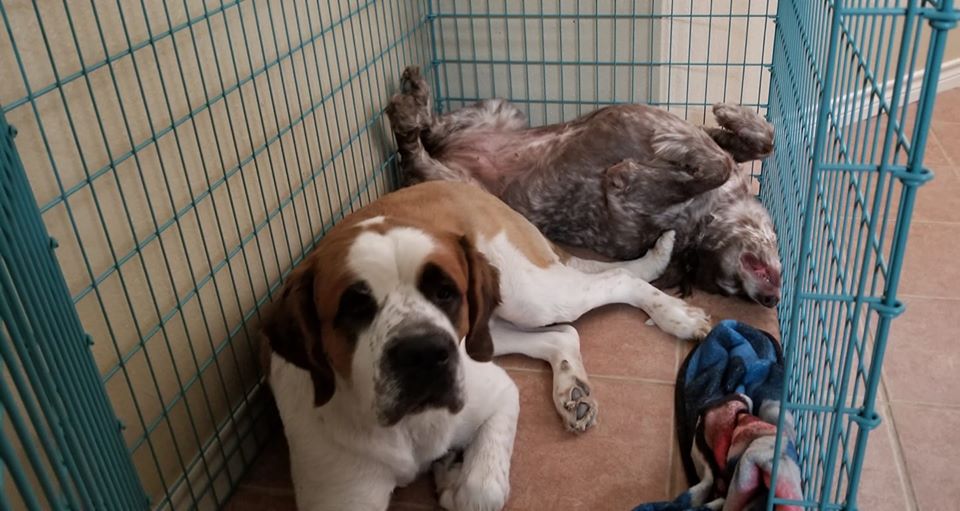Puppies & Kittens Care
Congratulations! Raising a new puppy or kitten is fun and rewarding — and a lot of work! At Brownsville Spay Neuter, we want to make sure your new addition gets a healthy start to life. The following are typical care schedules for most young pets, but your veterinarian will help you develop an individualized plan for your puppy or kitten.
The first thing you and your new puppy or kitten should do is meet with your veterinarian for an exam. This ensures that your new pet is healthy and doesn’t have any birth defects or health issues.
For the first visit, plan on discussing with your veterinarian the following subjects
- Setting up a vaccination plan.
- Which foods your vet recommends, how much and how often to feed, and when to switch to adult foods (which varies by breed).
- Options for controlling fleas, ticks, and internal parasites like heartworms.
- Signs of illness to watch for during your pet's first few months. Puppies and kittens are susceptible to health risks and illnesses that need to be treated in the early stages.
- When you should spay or neuter your kitten or puppy.
- House training your puppy (we recommend crate training) or litter box training your kitten.
- Socializing your pet - proper socialization helps avoid future behavioral problems.
PUPPIES & KITTENS CARE: WHY & WHEN
Puppy Vaccination Schedule
3 weeks to 5 weeks
- Physical Consultation
- Deworming
- First Vaccination: (distemper/hepatitis/parainfluenza/parvovirus)
- Stool exam
- Deworming: For hookworms and Roundworms.
- Nutritional counseling: Feed puppy as mush as will finish in 10 minutes, 3 times per day.
- Second Vaccination: DHPP #2 (distemper/hepatitis/parainfluenza/parvovirus)
- Deworming: For hookworms, Roundworms, Whipworms, Tapeworms.
- Nutritional counseling
- Behavioral training
- Third Vaccination: DHPP #3 (distemper/hepatitis/parainfluenza/parvo virus)
- Rabies Vaccination
- Gastrointestinal Deworming: For hookworms, Roundworms, Whipworms, Tapeworms.
- Heartworm Prevention: Start heartworm prevention (once a month for life); Pills (Tri-heart) or drops (Advantage Multi) available.
- Ask for our handout on heartworm disease.
- Sterilization Surgery: (make an appointment)
- Rabbies, Parvo-distemper vaccines, and Microchip are free with a surgery package.
- Ask for our handout on the benefits of spay and neuter surgery.
- Fourth Vaccination: DHPP #4 (distemper/hepatitis/parainfluenza/parvovirus, leptospirosis)
- Fifth Vaccination: DHPP #5 (distemper/hepatitis/parainfluenza/parvovirus, leptospirosis)
- Spay/neuter
- Microchipping
- Bordetella Parainfluenza Adenovirus (kennel cough)
Puppy Behaviors
Puppy Behaviors (8–12 weeks)
- Puppies this age are very playful and curious, so it’s important to puppy-proof your home. Provide lots of love, toys, and encouragement. Security and predictability considerations are crucial.
- Purchase a high-quality puppy food that lists a whole meat source as the first ingredient. Follow the serving guidelines.
- Everything your puppy encounters may have a lasting impact, so remember this when establishing house rules.
- This is when your puppy discovers where he or she falls in the pack (your family). Your role is to become the pack leader. Be consistent with rules and avoid games of dominance such as tug-of-war or wrestling.
- Reward all positive behaviors.
- Consider enrolling in puppy training courses.
- Many of the behavior issues during this time (urine marking, roaming, inter-species aggression, increased dominance) can be reduced or eliminated with spaying/neutering.
- Energy levels are high, and mental and physical exercise play a large role in keeping your pet healthy and well-behaved.
Kitten Vaccination Schedule
3 Weeks
- Pyrantel deworming #1
- FVRCP #1 (feline viral rhinotracheitis/calicivirus/panleukopenia)
- Pyrantel deworming #2
- FVRCP #2 (feline viral rhinotracheitis/calicivirus/panleukopenia)
- Pyrantel deworming #3
- FVRCP #3 (feline viral rhinotracheitis/calicivirus/panleukopenia)
- Pyrantel deworming #4
- Feline Leukemia Vaccine
- Feline Leukemia/FIV Test (3DX)
- Rabies vaccine
- FVRCP #4 (feline viral rhinotracheitis/calicivirus/panleukopenia)
- Spay/neuter
- Microchipping
Kitten Behaviors
7–14 Weeks Provide an outlet for your kitten’s natural scratching behavior (e.g., a cat tree) and note whether there’s a preference for a specific texture or orientation (horizontal or vertical). Purchase a high-quality kitten food and follow the serving guidelines. Position a litter box or two in easily accessible areas. We recommend a minimum of one box per cat per floor. Scoop daily and clean weekly to ensure appropriate elimination behavior. 3–6 Months Regular play times are important to growth and development. Avoid rough play as this will encourage inappropriate nipping/scratching. Schedule your kitten’s spay/neuter surgery. This procedure should occur by the time your pet is 6 months old.
Subscribe to our newsletter
We send e-mails once a month, we never send Spam!



